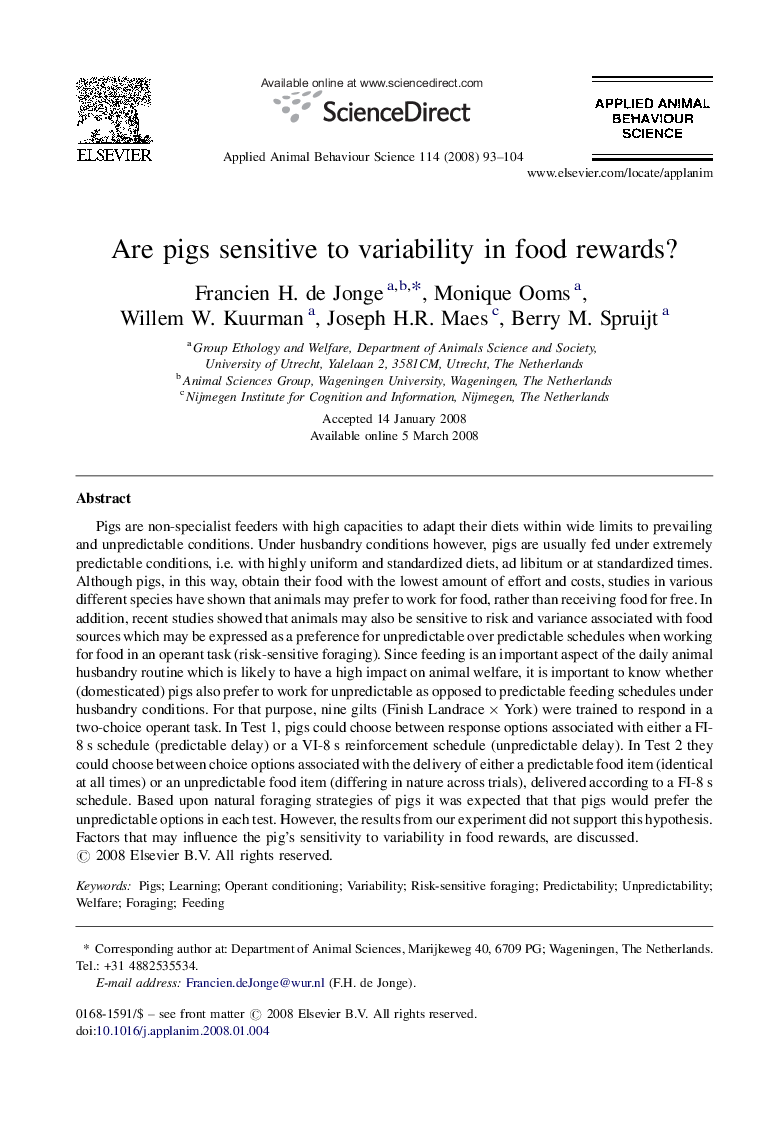| Article ID | Journal | Published Year | Pages | File Type |
|---|---|---|---|---|
| 4523848 | Applied Animal Behaviour Science | 2008 | 12 Pages |
Pigs are non-specialist feeders with high capacities to adapt their diets within wide limits to prevailing and unpredictable conditions. Under husbandry conditions however, pigs are usually fed under extremely predictable conditions, i.e. with highly uniform and standardized diets, ad libitum or at standardized times. Although pigs, in this way, obtain their food with the lowest amount of effort and costs, studies in various different species have shown that animals may prefer to work for food, rather than receiving food for free. In addition, recent studies showed that animals may also be sensitive to risk and variance associated with food sources which may be expressed as a preference for unpredictable over predictable schedules when working for food in an operant task (risk-sensitive foraging). Since feeding is an important aspect of the daily animal husbandry routine which is likely to have a high impact on animal welfare, it is important to know whether (domesticated) pigs also prefer to work for unpredictable as opposed to predictable feeding schedules under husbandry conditions. For that purpose, nine gilts (Finish Landrace × York) were trained to respond in a two-choice operant task. In Test 1, pigs could choose between response options associated with either a FI-8 s schedule (predictable delay) or a VI-8 s reinforcement schedule (unpredictable delay). In Test 2 they could choose between choice options associated with the delivery of either a predictable food item (identical at all times) or an unpredictable food item (differing in nature across trials), delivered according to a FI-8 s schedule. Based upon natural foraging strategies of pigs it was expected that that pigs would prefer the unpredictable options in each test. However, the results from our experiment did not support this hypothesis. Factors that may influence the pig's sensitivity to variability in food rewards, are discussed.
